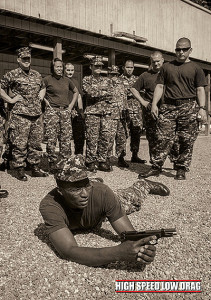 This post is based on the video – No. 1 Reason Why Veterans Fail
This post is based on the video – No. 1 Reason Why Veterans Fail
Hi. I’m Antonio Centeno. I’m one of the founders of High Speed Low Drag along with John Lee Dumas, Tom Morkes.
We’ve come together as veterans who are doing pretty well on the civilian world to give you information that can help you kick butt in the civilian world, make a great transition.
It doesn’t matter if you are just getting out or you’re six months out or if you’ve been out for two decades.
Gentlemen and ladies, the information over at High Speed Low Drag is going to help accelerate your progress so you can kick butt as an entrepreneur, so you can get that job, so that you can succeed after your time in the military.
Okay. Today we’re going to be talking about the number one reason why veterans fail.
What do you think it is? Take a second. Go down the comments. Let me know. What do you think it is? What’s the number one reason? Is it money? Is it time? Is it lack of skills? Write that. Yeah. I love hearing from you guys in the comments by the way but it’s none of those actually.
Click here to watch The Number 1 Reason Veterans Fail: What You Can Do To Avoid The Path To Failure on Youtube.
What it is, the number one reason why veterans fail is – no, it’s not because they weren’t Marines. We all know that Marines are going to succeed. But, no, guys.
The number one reason veterans fail is mindset.
They come out of the military and they’ve got a reliance on structure. Too much structure. They’ve got a dependency on large-scale support systems. They are used to going to a school to learn how to do something and then getting stuck into the position. Unfortunately, when you get in the civilian world, what you run into is a lot of chaos.
A good buddy of mine, Ryan Masters – and he runs a free program called A Spartan Rises. You should go check it out. I talk about it in another video. But, guys, one thing he noticed about all the military guys he’s worked with is, wow, these guys are structured. They really have a setup for doing this. Entrepreneurs, business owners that have gone and worked with people on bases, they’re like, “Wow, you guys really have a lot of systems here. This is amazing.”
 We take it for granted when we’re in the military. We’re just used to, if we’ve got a pay issue, to be able to go over to the admin area, to the S1 shop and get it fixed. If we need some supplies, we’ll go to the SAPO or supply chain. We’ll make things happen. If we have a weapon issue, we go to the armory. We’ve got all the support structure and we’re used to it.
We take it for granted when we’re in the military. We’re just used to, if we’ve got a pay issue, to be able to go over to the admin area, to the S1 shop and get it fixed. If we need some supplies, we’ll go to the SAPO or supply chain. We’ll make things happen. If we have a weapon issue, we go to the armory. We’ve got all the support structure and we’re used to it.
When you get out, especially if you’ve been in for 20 years, 15 years, guys, you don’t have all of that support structure when you’re in the civilian world. Yes, there’s some of it but almost all of it is paid for and it’s something that you’re going to have to really change your mindset. So let’s talk about improving your mindset so when you get out you can kick butt.
Number one is be open to new ideas and new systems.
Just because the way things worked in the military, don’t complain about it just because it doesn’t work that way in the civilian world. Go out there. Learn how it works in the civilian world. You’re going to have to learn about health insurance. You’re going to learn or have to learn about disability insurance.
You’re going to have to learn about mortgages and how to find the best deal in that area. Look at it as a new challenge. Yes, you are maybe a bit behind people that have been in the civilian world for 20 years but you know what? You can approach this systematically. You’ve got the work ethic.
I talked about this in the 13 advantages that you have. It’s a separate video. But, guys, you can very quickly catch up and within a year you’re going to be passing people that have been doing this for 20. So be open.
The next thing is to surround yourself with amazing people – successful vets, people that are making stuff happen. Some of these could be paid. Some of these could be professionals like finding yourself a lawyer, finding yourself an accountant, finding yourself a tailor who can help you dress better and improve your style.
Guys, those are going to be paid consultants but you can also surround yourself with other veterans who are just simply ahead of you, been out for five years but not for ten years. We want to work with other veterans and mentor them. Believe me, I’m always opening up my door to vets. Surround yourself with amazing people because we become the average of the people we surround ourselves with.
 Number three is continue to learn and to teach yourself. They say you can’t teach an old dog new tricks. Well, never become an old dog. Always be thinking, okay, I’m always wanting to expand my mind. You’re 40 years old; go learn to ski. You’re 50 years old; learn how to sew.
Number three is continue to learn and to teach yourself. They say you can’t teach an old dog new tricks. Well, never become an old dog. Always be thinking, okay, I’m always wanting to expand my mind. You’re 40 years old; go learn to ski. You’re 50 years old; learn how to sew.
I don’t know. You’re 20 years old. Go ahead and go out there and learn how to build, how to work with wood. Have fun. Always be teaching yourself something new.
I remember one of the most fun things I did when I was stationed at Pensacola is I went and took some courses at the University of South Florida. But the real reason for taking it was, hey, that’s where the ladies were at so I’m going to go back to college. They’re not at the bars.
But what I did was I took a class on Buddhism. I took a class on women’s studies. Yes, I did take a class on women’s studies and I can tell you I was one of only two men in that course. But the point is is I opened myself up and I was like, “Wow. This is actually pretty interesting stuff.” I had a lot of fun.
You open your mind. Always be looking to do something that when people see you doing it, they’re like, wow. I didn’t know that he wanted to learn how to dance or that he wanted to learn how to sing. When you do that, you expand your mind, you open up doors, and you cause people to kind of scratch their head and that’s kind of cool.
I remember growing up as a kid in Texas and learning that Herschel Walker, the running back for The Dallas Cowboys, was taking ballet lessons. At first, growing up in West Texas, that’s like, “What is this guy thinking?” But then it made sense because it was learning how to better control his muscle movement, how to control his body. If for some reason you’ve got a problem with that, I mean, that was Herschel Walker. I mean, that guy was an amazing athlete. If he can do that, I think that we could learn something from it.
Gentlemen, hopefully, you’ve enjoyed this. The number one reason veterans fail is their mindset. The number one reason that they succeed is their mindset. So make sure to shift yours, put it in the right direction, you’ll find a way. Take care. See you in the next video. Bye-bye.
Click here to watch The Number 1 Reason Veterans Fail: What You Can Do To Avoid The Path To Failure on Youtube.
